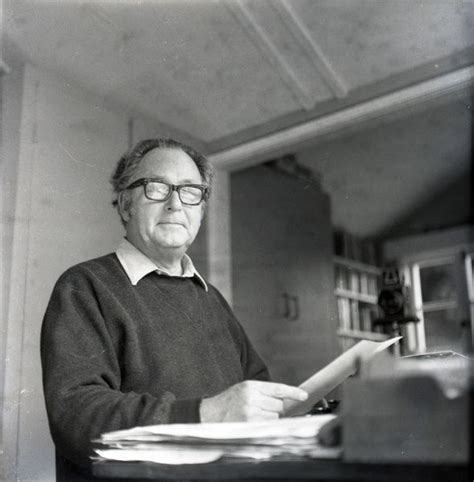Top 670 Popularity Quotes & Sayings - Page 12
Explore popular Popularity quotes.
Last updated on December 23, 2024.
In the mid-1980s, however, the Estonian TV programmers came up with a clever idea: they asked Moscow for millions of rubles to make propaganda in Estonia to fight the Finnish programs' popularity. They got millions from the government, but what they made was not propaganda at all! They simply made good, entertaining programs - no one in Estonia recognized them as propaganda, only Russia thought it was, so they got away with it. Of course, Russia provided their own propaganda programs, but Estonians knew to avoid them.
We never really see the global situation as a total situation. Today's political leaders are still lacking of the vision. They very often just try to cope with their own election, their own popularity, solving the problem or selling the ideas to meet their own voters. By doing that, it creates a great imbalance in terms of making deals or treaty or all those things. Even today the borders they're seeing the physical borders are very different from the political borders. Because all those powers are so connected, and you cannot even see whose interest in what move.
Most English speakers do not have the writer's short fuse about seeing or hearing their language brutalized. This is the main reason, I suspect, that English is becoming the world's universal tongue: English-speaking natives don't care how badly others speak English as long as they speak it. French, once considered likely to become the world's lingua franca, has lost popularity because those who are born speaking it reject this liberal attitude and become depressed, insulted or insufferable when their language is ill used.
Now obviously popularity isn't everything when it comes to stand up comedy, but the art form itself is better today than it ever has before. I think there are more great comics. I think the standard is higher. The critical analysis is a little harsher, but that is also good. Maybe people have a higher standard than before, maybe they are a little more judgmental, a little more brutal, that makes people work harder. It makes the stand up better.
This was early '90s and in New York hip-hop was coming on really strong; that was the sort of urban folk music that was almost threatening to eclipse rock music and indie rock music in terms of popularity, which it has certainly gone on to do. But you know, this is the end of the 1980s, beginning of the '90s. The whole independent label thing has really evolved to this incredible point from the early '80s when we started, and there wasn't one record label at all, until a couple people started forming these small labels.
Because it's kind of great, being an idea that everybody likes. But I could never be the idea to myself, not all the way. And Agloe is a place where a paper creation became real. A dot on the map became a real place, more real than the people who created the dot could never have imagined. I thought maybe the paper cutout of a girl could start becoming real here also. And it seemed like a way to tell that paper girl who cared about popularity and clothes and everything else: 'You are going to the paper towns. And you are never coming back.
Disraeli was now at the height of his fame and popularity. He still had his enemies... But the people as a whole now admired and respected him deeply... His unscrupulous past and cynical opportunism were being largely forgotten or forgiven. He was gradually becoming recognized not only as the prophet of a new Conservatism, at once compassionate at home and positive abroad, but as a great statesmen whom the Queen did well to honour. Power had brought responsibility. By 1878 the transformation in public attitudes towards Disraeli was complete.
The world has enough women who are tough; we need women who are tender. There are enough women who are coarse; we need women who are kind. There are enough women who are rude; we need women who are refined. We have enough women of fame and fortune; we need more women of faith. We have enough greed; we need more goodness. We have enough vanity; we need more virtue. We have enough popularity; we need more purity.
[Alan Berg's] memory haunts many people, even those who never heard him on the radio, because his death could be read as a message: Be cautious, be prudent, be bland, never push anybody, never say what you really think, offer yourself as a hostage to the weirdos even before they make the first move. These days, a lot of people are opposed to the newfound popularity of 'trash television,' and no doubt they are right, and the hosts of these shows are shameless controversy-mongers. But at least they are not intimidated. Of what use is freedom of speech to those who fear to offend?
My attitude is if somebody blunders into the level of popularity; at least remember the human factor. These guys are still human beings and hopefully still have hearts and if you keep in touch with them rather than vilify them you may be able to encourage them to go in the right direction. What I'm hoping will eventually happen is that they will grasp the amount of power and financial clout that is now at their fingertips and use those as tools to help real people with real things the way punk politics was always designed to do before, but nobody had any money.









